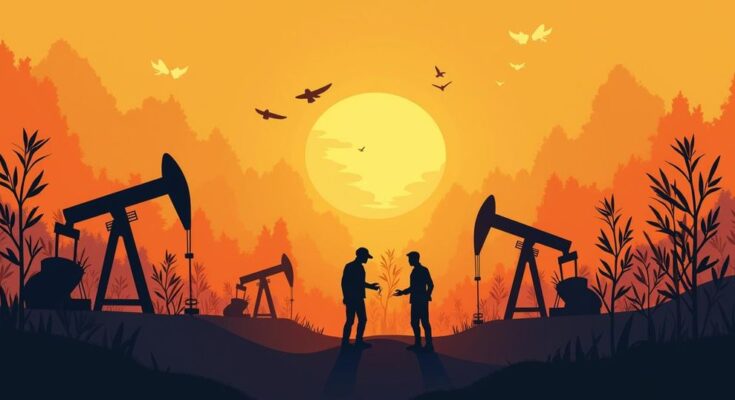Aliko Dangote, CEO of Dangote Refinery, addressed the complexity of transitioning from fossil fuels to renewable energy during UNGA 79, emphasizing that this change will take time. He highlighted Africa’s urgent need for energy solutions, advocating for the simultaneous use of natural gas, coal, and investments in renewable energy to tackle the continent’s pressing issues of fuel scarcity and lack of electricity.
Aliko Dangote, CEO of Dangote Refinery, recently expressed his views on the gradual transition from fossil fuels to renewable energy during discussions held at the 79th United Nations General Assembly (UNGA 79) in the United States. He emphasized that while the shift towards renewable energy is essential, it will not occur overnight. According to Dangote, Africa must presently utilize alternative energy sources such as natural gas and coal to address its immediate electricity and fuel shortages. Dangote noted the pressing challenges facing the continent, particularly the lack of access to electricity, with an alarming figure of 600 million Africans living without this basic necessity. His remarks underscored the need for a dual approach: continuing to use current fossil fuels while strategically transitioning to renewable energy, “Transitioning doesn’t happen in one day. It will happen over a period of time. If we are going to move from where we are straight into renewable, we will die. Right now, we have 600 million Africans without electricity. We have natural gas, coal, and other things. What we do is that we have to do both at the same time. Finding a replacement for oil will take a long time. Do you know what you can produce from oil? You produce over 6,800 items from oil,” he stated. He spoke further about Dangote’s commitment to investing in renewable energy, stating that it is a logical next step following the establishment of the refinery and fertilizer plant. “We will definitely invest in the renewable energy. Now, we have achieved setting up a refinery, fertilizers, and other industries. We will lead. One thing that we have to get clear is that nobody will develop Africa, but Africans. No matter what, we must lead before other people are going to get convinced to follow us,” he expressed. Despite Africa’s minimal contribution of 4% to global greenhouse gas emissions, the continent is significantly affected by climate change. Reports from the African Development Bank highlight that Africa is the most vulnerable to the adverse effects of climate change, which include heightened food insecurity and deteriorating ecosystems. The World Meteorological Organization has also indicated that around 110 million individuals faced climate-related challenges in 2022, resulting in substantial economic losses. Furthermore, research by the United Nations Environment Programme projects that mitigating climate impacts in Africa could cost up to $50 billion annually by 2050, while investment needs are estimated to reach $3 trillion by 2030 to sufficiently address climate adaptation requirements.
The discourse surrounding climate change, particularly regarding the transition from fossil fuels to renewable energy, is increasingly pivotal in global discussions. Aliko Dangote’s insights highlight the complexities involved in this transition, especially in the African context, where energy shortages remain pressing. Africa’s energy landscape is marked by a heavy reliance on fossil fuels despite the urgent need for sustainable energy solutions. Dangote’s comments also reflect broader concerns regarding the economic impact of climate change on Africa, an environment where consequences often outweigh the continent’s modest contribution to global emissions.
In conclusion, Aliko Dangote articulates a pragmatic approach to energy transition in Africa. While the move towards renewable energy is essential for long-term sustainability, immediate challenges dictate a continued reliance on fossil fuels. His commitment to investing in renewable energy reflects a responsible strategy that prioritizes the needs of Africans and underscores the importance of African leadership in the narrative of sustainable development. The urgency of addressing the continent’s energy crises cannot be overstated, and a balanced approach may pave the way for achieving both immediate and long-term energy goals.
Original Source: nairametrics.com




